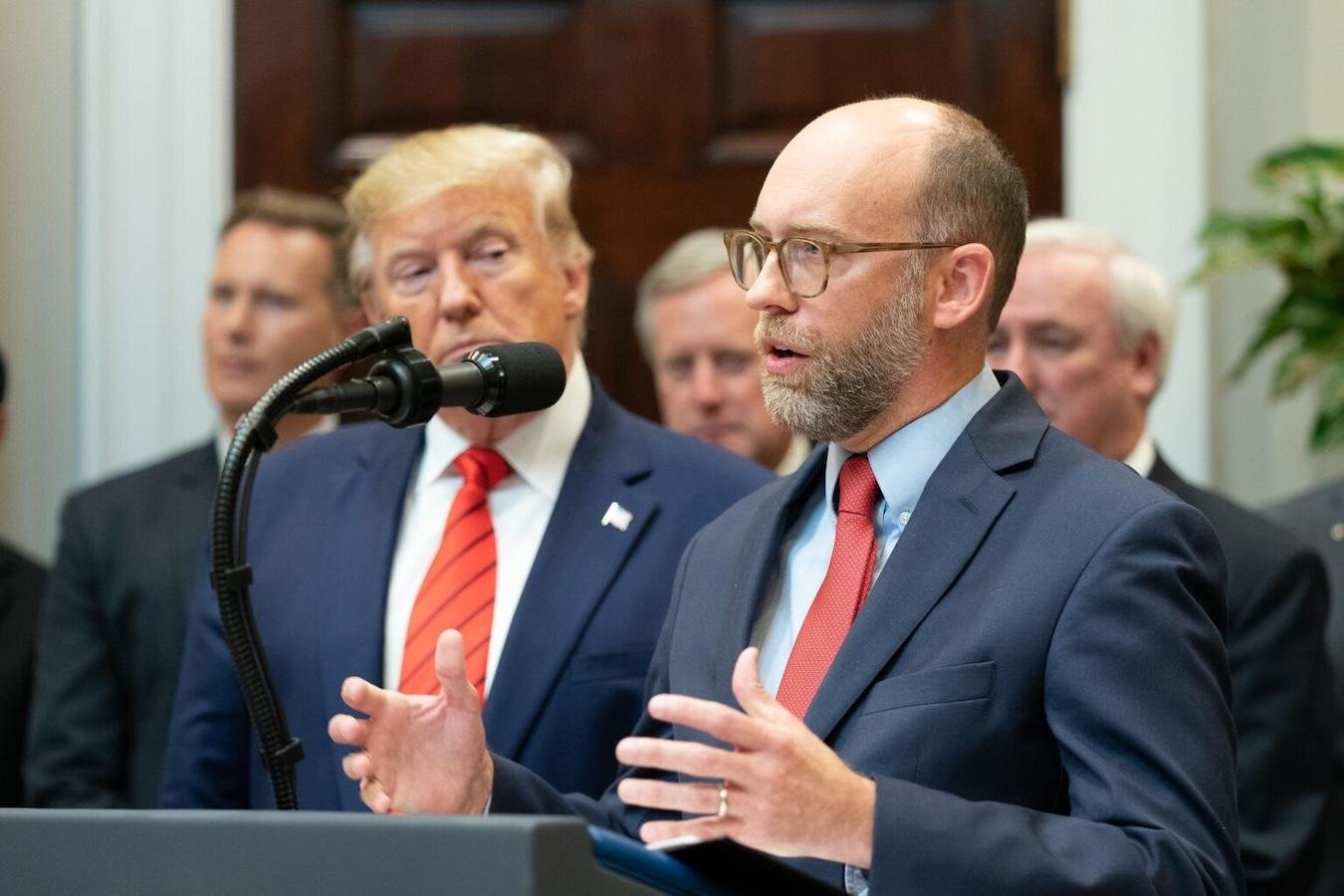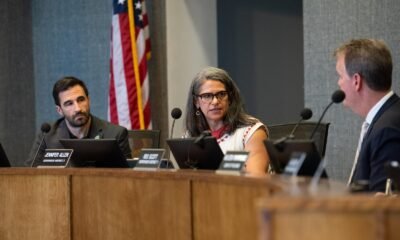crime
Trump’s Nominees: Paving the Path to Project 2025

The 19th originally published this story. Following his election victory, President-elect Donald Trump has shown his intentions to align his administration with Project 2025, a proposal crafted by conservative thought leaders from the Heritage Foundation. This strategy aims to introduce a conservative Christian agenda across the federal government, significantly affecting the rights of women, LGBTQ+ individuals, and other vulnerable groups.
Russell Vought is a key figure in this transformative effort, having been appointed by Trump to lead the Office of Management and Budget (OMB), an agency pivotal for shaping the president’s budget and policies. If confirmed by the Senate, Vought will leverage his previous experience in the role to facilitate Project 2025’s extensive reforms, many of which seek to consolidate executive power while dismantling programs that aid low-income Americans.
Ben Olinsky, a former Obama administration advisor, critiques Vought’s vision for the OMB as one prioritizing unchecked executive control. “It’s crucial for the public to understand the structural changes they propose,” he advised. Vought’s prior roles in the OMB have equipped him with knowledge about how to strategically steer federal agencies toward fulfilling Trump’s directives.
His communication about Project 2025 has been candid; Vought has described the Center for Renewing America, a pro-Trump group he established, as a “Death Star” designed to effect change in societal debates. His proposed agenda underscores a desire to advance Christian nationalism, with a significant focus on redefining traditional family structures while sidelining LGBTQ+ rights.
In interviews, Vought has depicted the OMB as the “nerve center” for presidential policy and vowed to streamline compliance from federal agencies. His strategy includes potentially eliminating dissent within agencies and withholding federal funds from programs not aligned with presidential priorities—mechanisms that may facilitate sweeping changes arising from Project 2025.
The document outlines recommendations that could severely limit reproductive rights and redefine family as strictly a male-female partnership, marking a substantial shift away from established norms. Additionally, it suggests transforming the FBI into a politically charged entity, further illustrating a willingness to reshape federal oversight fundamentally.
While some proposals have circulated in Republican circles for years, Project 2025 serves as a detailed implementation roadmap for the conservative agenda. Olinsky remarks that it lays bare both their ambitions and practical action plans, raising significant alarm about the possible implications for American governance.
Vought’s past involvement with the OMB included creating initiatives that threatened federal employee protections. Though President Biden voided such executive orders upon taking office, Project 2025 calls for reinstating these measures, potentially resulting in widespread job reevaluations and terminations based on loyalty to the administration.
With efforts already underway to identify federal employees for termination, the ramifications for workforce integrity are considerable. Critics warn that loyalty tests could undermine federal efficacy and expose workers to intimidation, ultimately jeopardizing public safety and service quality.
During Trump’s first term, the OMB played a controversial role in redirecting funds against congressional intent, notably during the Ukraine scandal that led to Trump’s first impeachment. Such actions indicate a willingness to manipulate the allocation of federal resources to fulfill executive agendas, a theme likely to recur under Vought’s leadership.
The impending confirmation process for Vought seems poised for success given Republican control of the Senate. This highlights the stark divide in American political discourse as the country braces for an eagerly anticipated, yet controversial, second term for Trump.
As Trump and Vought prepare to assert control over the federal workforce and fiscal means, significant questions loom about which values will be endorsed and whose rights may be undermined in the process.


















